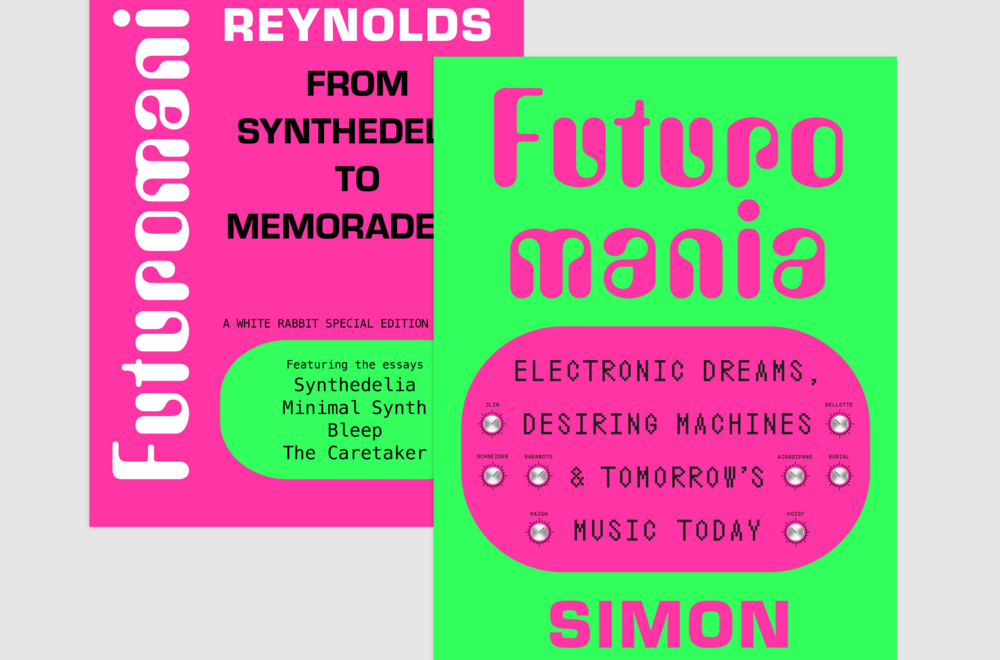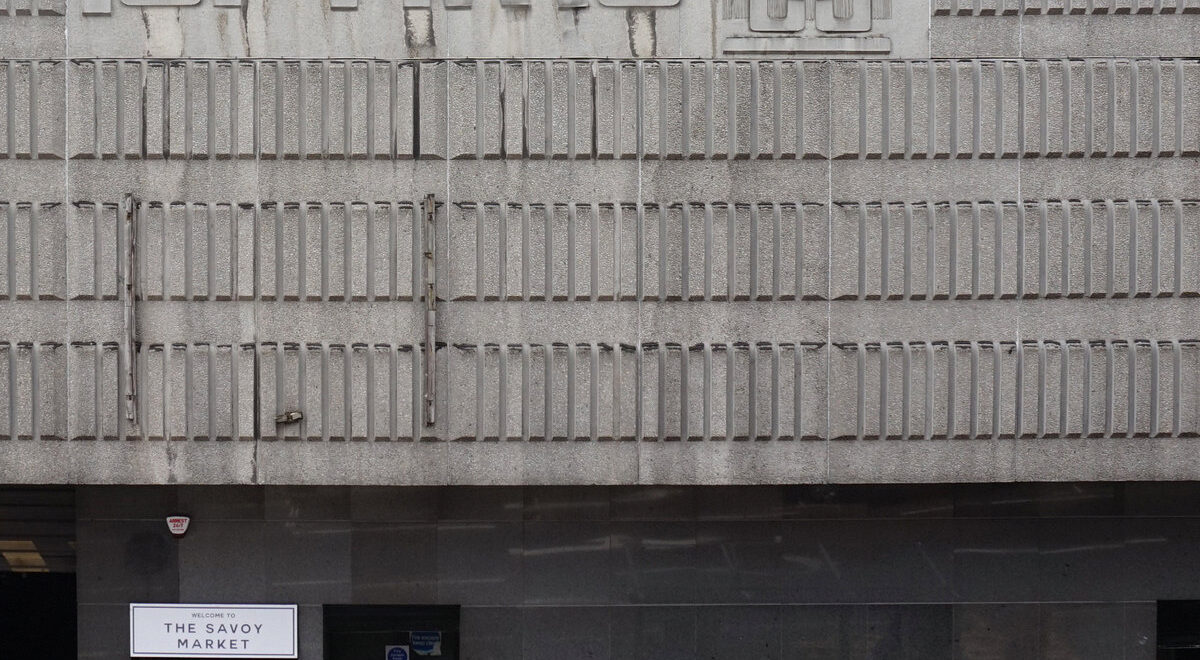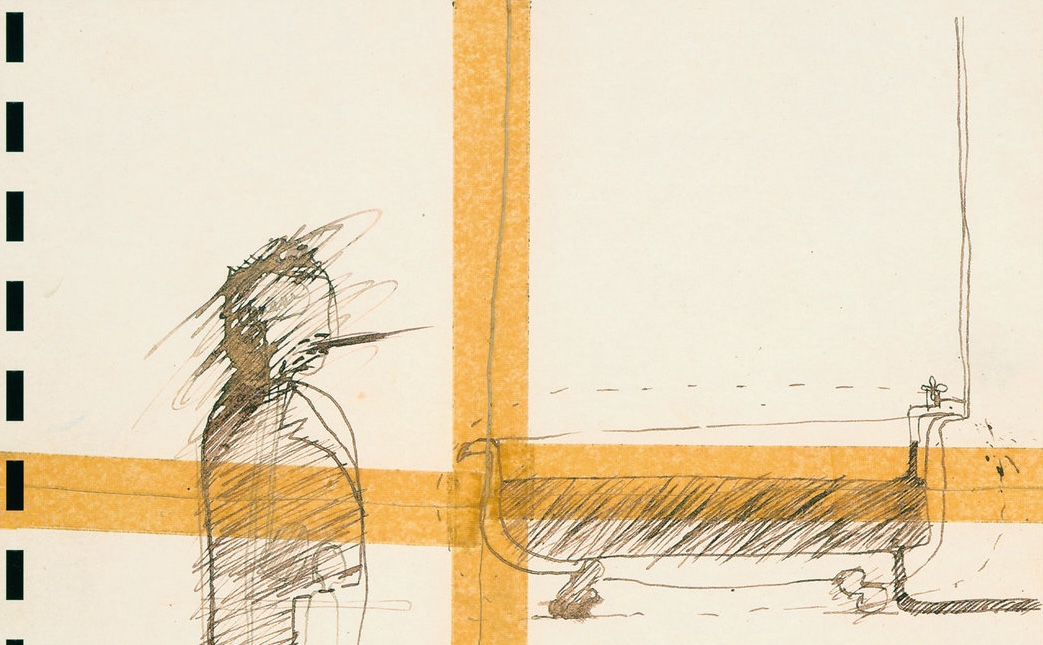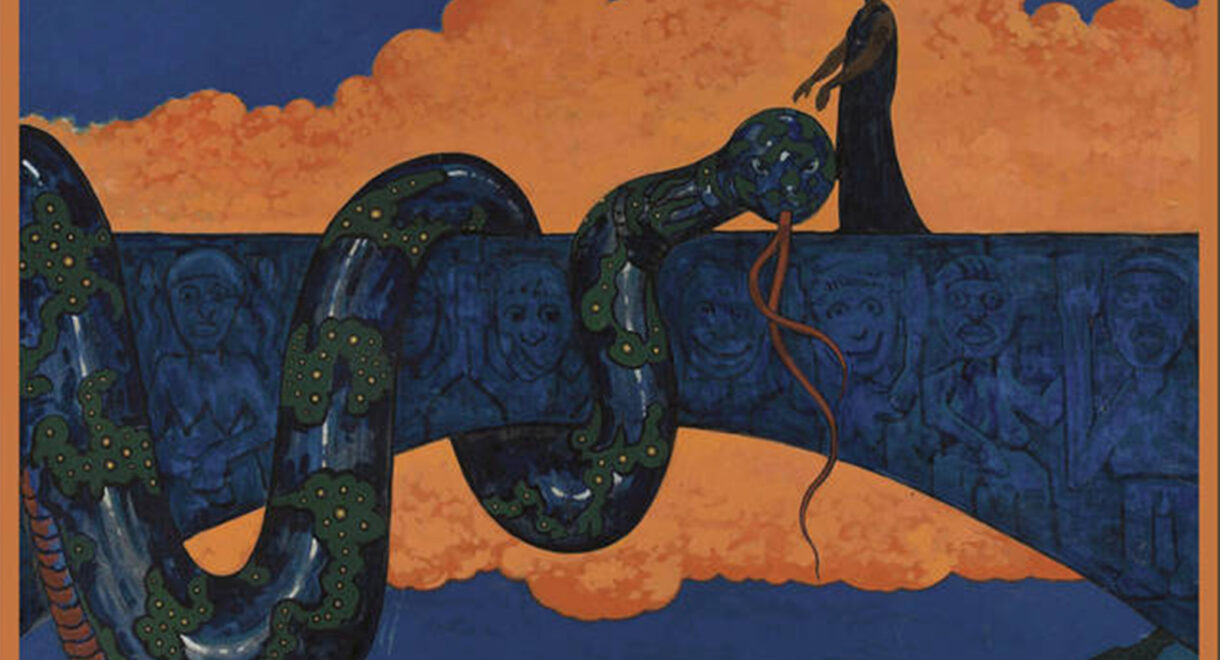The summer is halfway over and you’ve been scrolling for like, what, six weeks straight now? Step away from your phone (after reading this, of course). An analog […]
David Behrman in His Own Words: On the Sonic Arts Union, the Kitchen and Lovely Music

This is a post about New York musical collective the Sonic Arts Union, but it could be about the magical intricacies of virtually any earthen revelation. Push aside a big stone in the forest, and an entire microcosm of brilliantly baffling life reveals itself. Buy a microscope at a secondhand shop, and soon tiny universes, as infinite as the cosmos, come into focus. The cosmos? A powerful telescope and darkness make it easy to get lost in the abyss above. Art. Ocean life. Literature. Consciousness. There’s just so much out there to get obsessed by.
The same is obviously true of recorded music and those who love it. Each record, artist, label, melody, line, phrase, lyric begets another, and another, as you follow a kind of breadcrumb trail that guides you to your next musical discovery. An infinite set of fateful consequences have created your taste, led you to the music you love, and pushed you to absorb more and more.
Which is why you should inhale this entire post about the Sonic Arts Union (SAU), as it will lead you to profoundly glorious music and a fount of ideas on sound and creativity. Hold it in your lungs until it wheedles its way into your psyche. In the same way that you never dip your toes in the same river twice, you’ll experience this work anew with each listen. All you need is music and peace.
“Solitude could be a universal treasure in a crowded world,” composer, sound artist and SAU cofounder David Behrman told the New York Times’ John Rockwell. If only we listened.
Although the SAU only released one album together, anyone who follows ISC or esoteric music will likely recognize one of more of the musicians involved: Behrman, Robert Ashley, Alvin Lucier, and Gordon Mumma. All connected at one point or another with Mills College, the four composers — along with collaborators that at one point or another included Pauline Olivieras, “Blue” Gene Tyranny, Meredith Monk, Paul DeMaranis, and others — charted a singular course, fusing electronics, improv, and voice in a way never before imagined.
To get a sense of Behrman’s aesthetic, he wrote about the gear he used on On the Other Ocean in the liner notes, citing his love “for pure tunings and simple ratios; for homemade electronics with its mysterious knobs, its lexan enclosures with the screw-holes drilled not quite in the right places and its hand-wired circuit boards inside; for idiosyncratic brews of electronic timbres that were not trying to imitate the sounds of the real world.”
Perfect Lives: Stream Robert Ashley’s Essential Televised 1983 Avant-Opera in Full
To get another sense of Behrman’s approach to making music, there’s this: “Starting in the 1960s I had this way of double-testing whether what I was doing was worthwhile or not. Test #1: sober, is it good? Test #2: in an altered state, is it good? There needs to be a Yes to both questions.”
Behrman’s influence on synthesizer music can’t be overstated. In the 1960s, the New York-based Behrman oversaw Columbia Records’ series Music of Our Time, which released crucial music by artists including Terry Riley, Karlheinz Stockhausen, and John Cage.

In a 1997 interview with Perfect Sound Forever, Behrman spoke about the birth of the SAU.
PSF: You’ve been a Sonic Arts Union member with Robert Ashley, Alvin Lucier, Gordon Mumma. What kind of work did you do there?
The four of us liked very much to travel, to perform, to get to know the people who helped produce our events. (One of those producers, a young private in the Belgian Army named Jacques Bekaert, became our lifelong friend). On some of our tours Sonic Arts had eight artists, not four: Mary Ashley, Shigeko Kubota, Mary Lucier and Barbara Lloyd jouned us and contributed their work.
We were an anthology rather than a band. We shared equipment and stage-managing skills but never did any group pieces; the personalities were always distinct. Our performances explored aspects of music and performance that were outside the bounds of what contemporary music generally accepted. Partly that had to do with homemade electronics, partly with exploration of the nature of acoustics, partly with crossing the lines between theater, visual arts, poetry and music.
I hope that spirit of the sixties can remain with me. Recently Bob Ashley remarked that if he performs a piece of music and if after five minutes the entire audience hasn’t walked out, then he has failed. I thought that was a good expression of protest against the imposition these days of mass tastes by the superstar culture we have to live in.
In the New York Times, Rockwell documented Behrman’s early 1973 set at the performance space the Kitchen in Soho:
Monday marked the public debut of a new synthesizer Mr. Behrman has just finished designing and building. The machine is, he says, focused in its talents, in that it can make “long, slow” sounds very well and other kinds hardly at all. The consoles were manned by the composer and Katharine Morton. Any synthesizer seems at times to be making music by itself, but on Monday Mr. Behrman’s creation seemed particularly personified, with the two console operators performing vaguely disquieting lobotomies on their docile, gently singing patient.
On Monday at ISC NYC, we’ll be playing at proper volume to a quiet room the work of the SAU and some of its members and/or collaborators, many of whom issued records on Bay Area label Lovely. Part of our twice-weekly dedicated listening sessions from 2-5 p.m. — we’ve recently added a Wednesday session — this week’s focus will be on classic albums by Behrman, Ashley, Tyranny, Laurie Spiegel and others. It’s hosted by ISC NYC’s resident Lovely Music expert Dane Majors, whose stellar overview of 10 essential Lovely releases offers guidance of records to track down. Here’s what’s on deck for Monday:
Robert Ashley – Private Parts
David Behrman – On the Other Ocean
“Blue” Gene Tyranny – Out of the Blue
Meredith Monk – Key
Jon Hassell –Vernal Equinox
Alvin Curran – Songs and Views of the Magnetic Garden
Laurie Spiegel – The Expanding Universe
Giovanni Venosta – Olympic Signals
When: 2-5 p.m. Monday, Feb. 19.
Where: 350 Hudson Street (enter on King).
Read more:
10 Essentials from Bay Area Avant-Garde label Lovely Music Ltd.
Perfect Lives: Stream Robert Ashley’s Essential Televised 1983 Avant-Opera in Full
Music with Roots in the Aether ft. Robert Ashley, Terry Riley, Pauline Oliveros, Philip Glass
Just for the Record: Conversations with and about “Blue” Gene Tyranny










